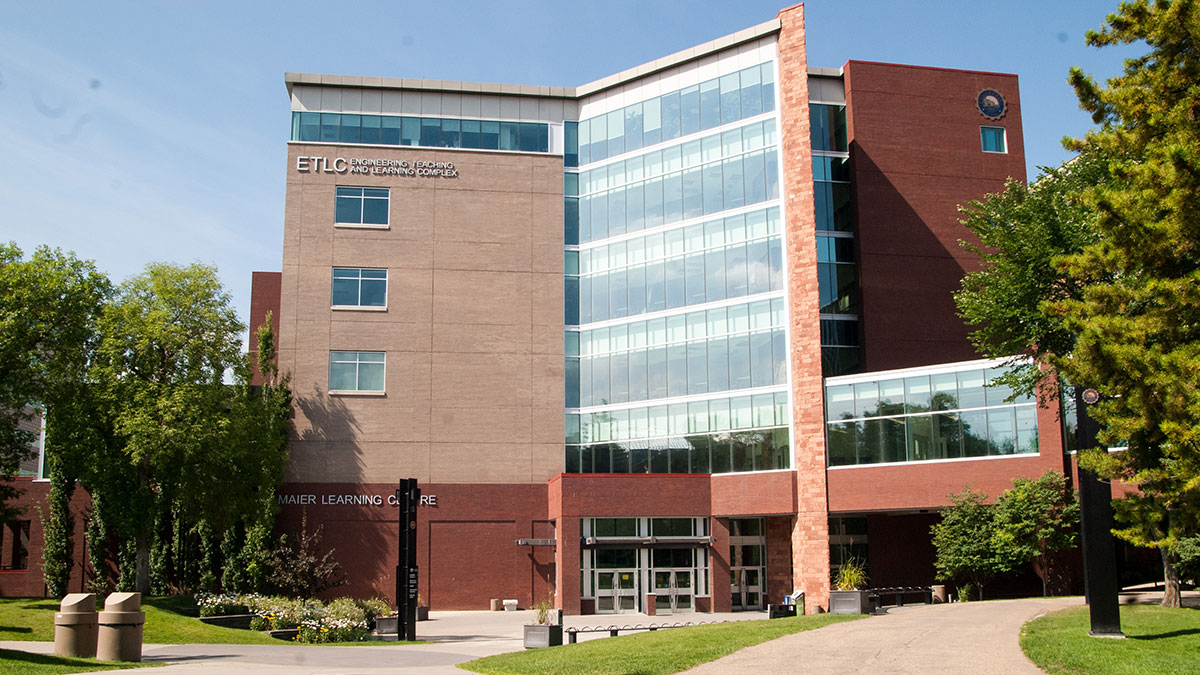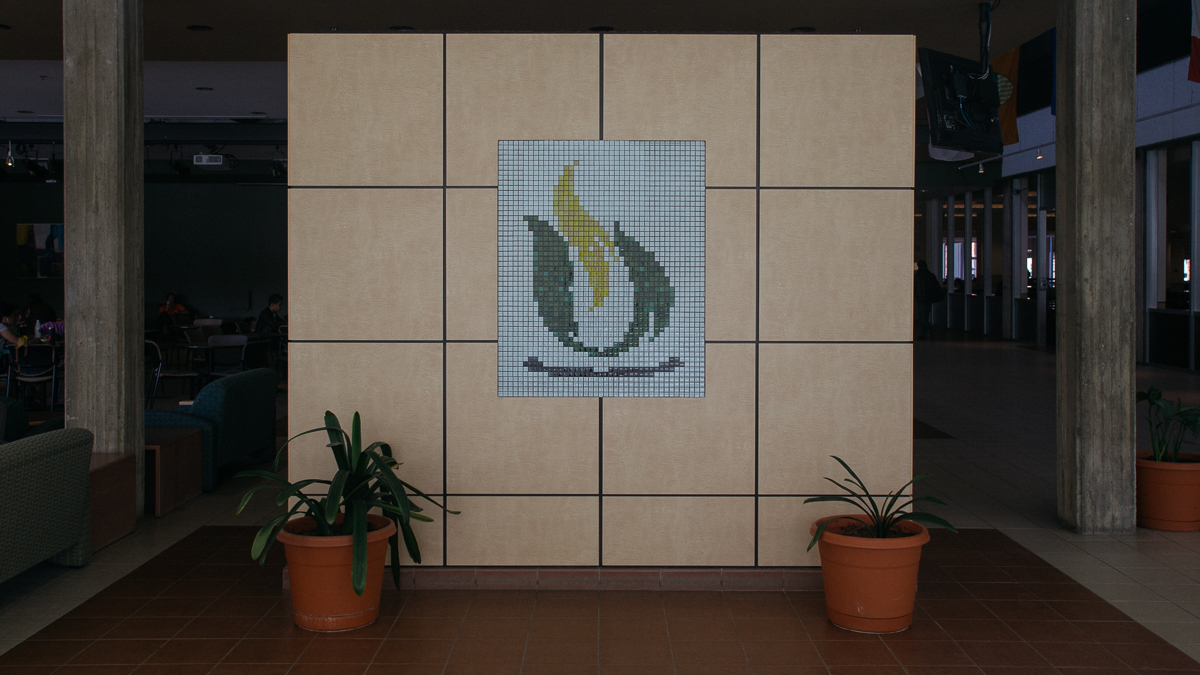 Ab Sch
Ab SchOn a quiet Sunday night, I happened across a Gateway article published on Feb. 23 titled “UBC pride burning shows hate, needs to be addressed,” written by Sofia Osborne. Interested in hearing news about another institution from my own school’s paper, I was intrigued. I’m bisexual. I care about gay-rights across Canada but especially at our institution. What I read shocked and angered me. It wasn’t the fact that someone had the audacity to burn a pride flag during an important week, or that events were cancelled due to security issues. I was shocked that suddenly engineering students, my home faculty, were being compared to this atrocious event.
Engineering students have a bad rep. It was earned 20, 30, 40 years ago. Things have changed. The culture is different. In fact, the entire demographic is different. U of A Engineering has about 20 per cent female undergraduate students. These young women happen to overrepresent themselves in leadership and involvement roles in clubs, and more importantly in the faculty association, The Engineering Students’ Society, or ESS. Negative stereotypes are a direct insult to the women in this faculty that work so hard every day for their peers.
Statements like “even more of a boy’s club than it is today” are ignorant of the positive change that has taken place in the faculty. These changes have been taking hold in the past few years and I am proud to be in a faculty of students that appreciate diversity and reject misogyny. I challenge whether the author has any real knowledge of what it is like to be a student in this faculty or whether she is continuing to perpetuate harmful stereotypes.
This type of ignorance and judgment are the same types of problems that the LGBTQ+ have combated during their movement and I find it ironic considering that’s what the article was supposed to be about. For the most part, these stereotypes are only harmful to us on campus. They sour our reputation with the Dean of Students and make it harder for us to fight accusations against us (GEER Week 2015 anyone?). They fuel rivalries between faculties which makes collaboration more difficult. What happens when articles about these stereotypes get picked up nationally in professional magazines? What happens when people carry these ideas out of the school when they graduate? It harms the profession and it harms the students.
Scapegoating a certain group of people is a dangerous attitude, because it allows others the luxury of escaping blame. The righteousness that’s associated with pointing fingers is what perpetrates systemically discriminatory practices.
Engineers like to solve problems. We’re not afraid of asking hard questions, attempting solutions, and iterating over and over again until we get a right answer. We know that our Faculty and profession faces challenges, and we are trying to solve it. How do I know this? Because I’m actually a woman in engineering. In fact, I’m President of the Engineering Students’ Society, engineering’s Faculty Association. Out of ten senior executives of the ESS, six are women, including myself. What appears to be a boy’s club to you, is in fact, my club. By using me and my peers as statistics to make a point, the opinions presented invalidate my presence and experience in engineering.
According to the author, Lady Godiva created fear among women in engineering. However, I can confidently say that the women in engineering are no longer afraid. They are smart, ambitious and most importantly, they are bold. They know they belong here and they don’t need anyone to tell them otherwise. The boy’s club is now being run by women and it’s only improving from here.





Lesbian EE student here. Sarah, I’m glad you wrote this piece; it’s important to celebrate the achievements of undergraduate women in the Faculty of Engineering, and even more important to be visible as a member of the LGBTQ community in the faculty.
However, I have a couple of criticisms to make:
1. 20% of undergraduate engineering students at the U of A being female is not a number to write home about. It’s average in comparison to other engineering schools across Canada. In addition, a majority of the ESS undergrad exec being female does not mean that all female undergraduate engineering students feel welcome in this faculty. There is still very much a culture of casual sexism among engineering undergrads, and women in this faculty do feel a pressure to conform or become desensitized to this culture in order to fit in, as Balazs pointed out below.
2. Comparing prejudice faced by undergraduate engineering students to ignorance and judgment faced by LGBTQ individuals is a very weak point. The two are not really directly comparable at all. Being a member of the LGBTQ community imposes restrictions on where we can safely work and live our lives while being out about our gender or sexual identity. Quite frankly, being an engineer does not.
This article does an excellent job at perpetuating the stereotype that engineers have a very poor grasp of English.
Sarah, your argument is similar to saying that it’s not fair that white Americans are stereotyped as a group who oppressed black Americans, because that was 20-40 years ago and now it just unfairly hurts their reputation. If you go down the hall from the ESS you will see the vehicle projects, which are definitely still a boys club, even despite my best efforts. Listen to the jokes that groups of male engineers make around women engineers, and you may be shocked to see how desensitized women engineers are to humour that would probably be considered offensive on other circles. Bragging that a full 20% (imagine that!) of engineering students are women proves how big the problem is, and your credentials as a woman in engineering do not negate that.
This whole article sounds likes a #humblebrag. I would know, I’m a woman in Engineering.
Engineering isn’t a boys club because 20% of the students are women? Hold up, because I didn’t realize only 20% of our population are women. You’re deeply involved in the faculty, which is great, but that isn’t reflective of the majority of students’ experience. Maybe the women in engineering are no longer afraid, but those that aren’t in it seem to be afraid of engineering. And that’s a problem.
If we’re using anecdotal experiences like yours to classify the faculty as a whole, I’ll use mine: every person I knew who went into engineering from school was a man. All of them are misogynistic, egotistical, sometimes-racist man-children that I ended contact with after I grew up while they didn’t. Sounds awful, right? But I’ve also met a ton of great engineers in University, so I know there are good ones out there, too. Stereotyping the entire faculty based purely on your own experiences harms the rest of it, whether the stereotypes are good or bad.
Getting women into STEM fields is an ongoing issue that’s being addressed by virtually every organization invested in engineering. Just Google “Women in STEM” or “Women in Engineering” to see countless stories. It’s definitely getting better, but saying the issue no longer exists to prove a point grossly understates the issue and does a disservice to those still struggling to get into the field.
And what’s with this line?
“This type of ignorance and judgment are the same types of problems that the LGBTQ+ have combated during their movement…”
Get back to me when you’re getting killed, imprisoned, beaten, and go through years of self-loathing and suicidal thoughts because you’re an engineer — oh wait, that doesn’t happen. I understand you have a problem with another article for making comparisons between LGBTQ+ issues and engineers, but here you’re doing the same thing, just to the detriment of the LGBTQ+ side. Considering the shit us LGBT peeps have gone through, I think that’s a lot worse.
Engineering students actually can go through depression, self-loathing and suicidal thoughts – it can be incredibly isolating to know that you’re going to be labelled as a campus pariah just because of a degree program stereotype. This can be especially true for students who were ruthlessly bullied throughout their entire childhood for being a geek, a nerd, or a dork. Even if you don’t personally understand the pain that some people feel from the scars of bullying, please don’t be so dismissive of it.
I’d also like to point out that since there ARE many members of the LGBTQA+ community in engineering school and in the engineering profession, loading more hate onto us because we decided to be engineers really doesn’t help us out a hell of a lot.
Discrimination and bigotry are systemic issues that are faced by every faculty and every profession. Why can’t people stop bickering over who has it worse and realize that there’s a lot of intersectionality at play when we’re talking about any large group of people?
And as a final comment: please understand that when you call engineering a boys club, you’re implying that engineering is a club for boys. Words matter, and by ignoring the presence of the women who make up 1/5 of the engineering community and focusing only on the 4/5 who are men, you’re perpetuating the inequality that you claim to be against.